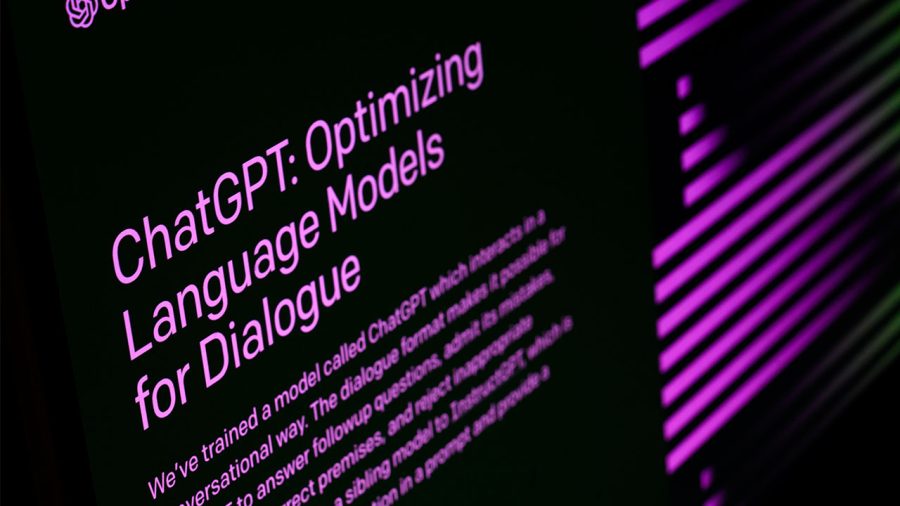Chat GPT: A Dangerous Advancement or Helpful Tool?
April 27, 2023
What is Chat GPT?
Chat GPT is an AI chatbot with a language based-model that was initially designed for customer service. It essentially uses data from Internet sources to fabricate human-like responses to a given inquiry. However, this harmless chatbot technology has morphed into a resource that is helpful yet simultaneously damaging. You may be asking yourself– if this technology only provides an answer to a user’s query, how is it considered harmful?
How is Chat GPT used in an educational setting that might make it a threat to the integrity of education?
While Chat GPT is an incredibly useful technology for translating, debugging, and recommendations, its harm lies in its ability to actually write poems, essays, and code. As the latter of these uses has become incredibly popular, students–especially those in their middle and early high school years– have begun to use the technology to forge academic responses. Though Chat GPT’s writing abilities are not on par to those of high school students and the responses are often filled with unrelated information, this technology still alleviates a user’s work if a level of sophistication isn’t required in the subject matter. Also, as Chat GPT is used more frequently by students, it may continue to get “smarter” in a sense– thus making it more sophisticated and less detectable by teachers. Either way, the use of Chat GPT can be deciphered by an educator with the use of certain detecting applications, but this isn’t to say that Chat GPT responses couldn’t be altered manually or electronically to make the forged response less detectable.
Nevertheless, a student’s plagiaristic misuse of this application damages them ultimately because they slowly lose critical independent thinking– no matter if they receive actual repercussions or not. Picturing a future generation of thinkers who depend on applications like Chat GPT for critical thinking is an incredibly scary image, which is the reason many are extremely opposed to the new technology.
What do students and teachers at Abington think about Chat GPT?
When I asked Abington students and teachers if they would ethically feel comfortable using applications like Chat GPT, not taking into account the inaccuracy of some responses and the fact that teachers’ ability to determine Chat GPT responses, around 50% said they would use the application no matter the size of the project, 20% said they would use Chat GPT only for inconsequential busy work, and around 30% said they’d only use the application as a helpful resource for planning, explaining concepts they didn’t quite understand, or just not use it all.
It is important to remember that we can’t outrun this tool. Teachers and students both can utilize and learn from this tool, instead of banning it and thus unintentionally making it an intriguing topic for curious students.


